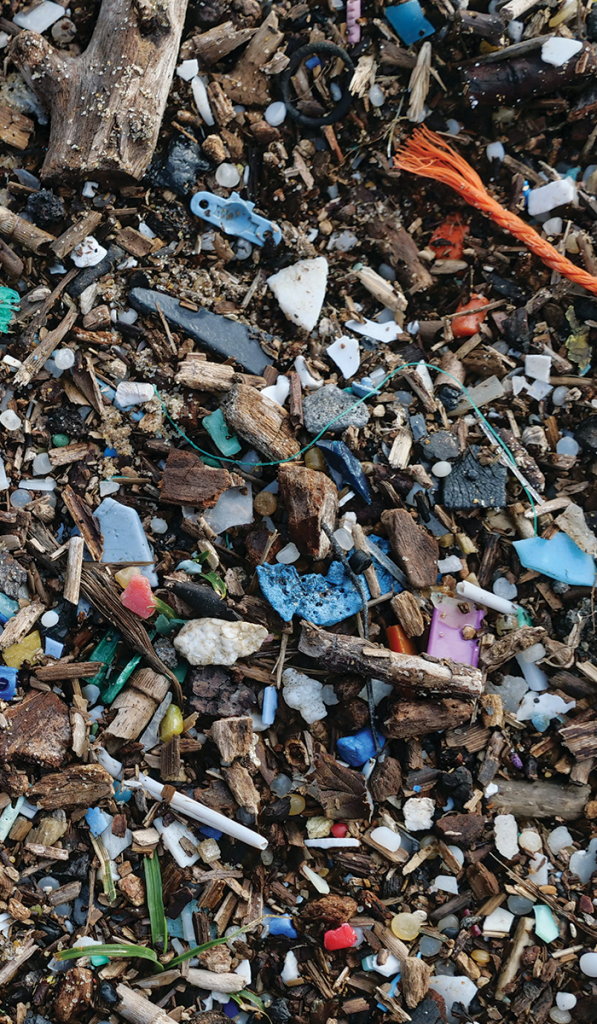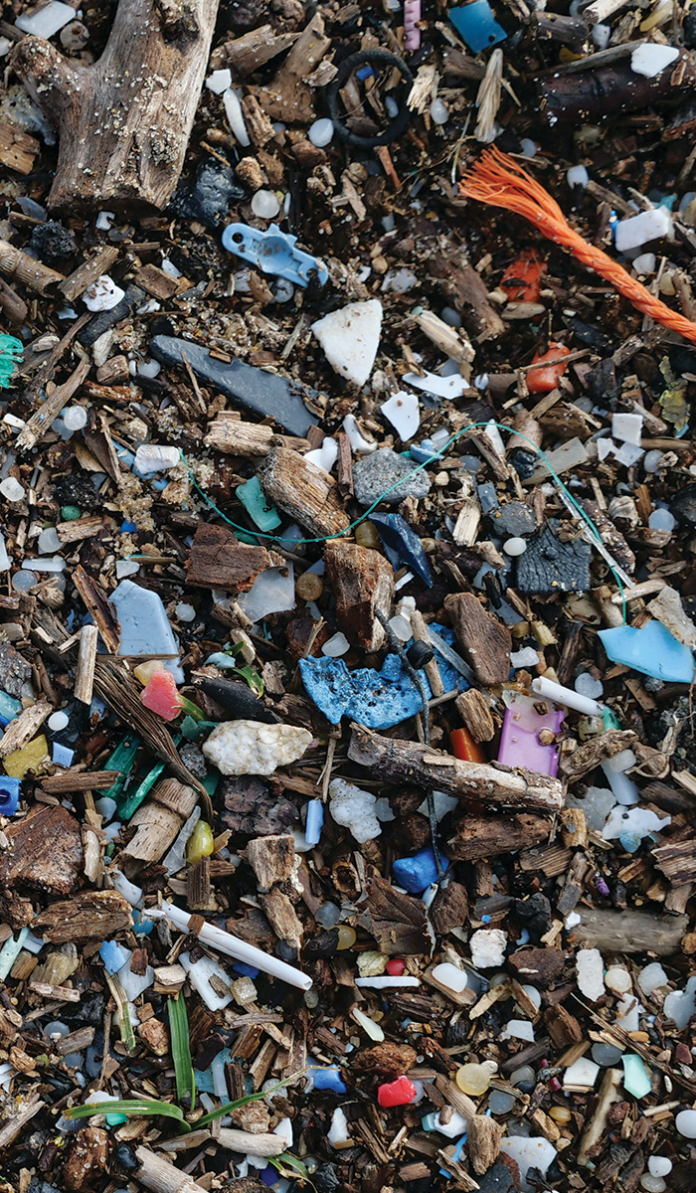After exploring and observing decomposition in action, students will share the message that while dead organisms become food for new life, the same can’t be said of plastic.

Grade level: 4-6
Learning Objectives:
– Distinguish between what can decompose and not decompose
– Identify the environmental impact of materials
that do not decompose, like plastics
During this activity, students will:
– Investigate decomposition and decomposers
– Discuss the lasting effects of things found in a landfill
– Plan a way to inspire the school community to
decrease use of plastic
Materials:
- gloves
- magnifiers
- school cameras and/or clipboards, pencils
- Decomposer Investigation Handout (1 per student or group)
- Brainstorming materials (i.e. white board, chart paper, etc.)
Set up:
Before beginning:
1. Identify a location your class can observe decomposition, for example: the school yard or a nearby park or forest.
2. Determine the boundaries for observation.
3. Decide on when the observations will take place:
• Date
• Time of day
• Length of observation
INSTRUCTIONS
1. Ask students what they know about decomposers and decomposition using the following questions as a guide:
• What happens to leaves when they are left out in nature?
• How does this happen?
• Why is this good for nature?
You may wish to use a picture book or video to activate prior knowledge and give the students a sense of what to look for during their observations.
A Log’s Life (picture book by Wendy Pfeffer, illustrated by Robin Brickman, Aladdin, 2007), Grades K-3
What Are Decomposers? (3 minutes), Grades 2-6. This short video gives a concise overview of the
role of decomposers in the food chain.
2. As a class, in groups or individually, have students list things they think decomposers CAN and CANNOT eat and turn into food for other plants and animals.
3. Explain the activity:
We are going to observe decomposers in the school yard/at the park/other location:
• Within the boundaries, you are going to look for things that are decomposing, for
example logs and leaves, or anything else
• When you find something, observe the decomposers that are consuming the logs
and leaves (demonstrate how to investigate without harming the habitat or inhabitants)
• Look for signs of new life
4. Demonstrate how to fill out the Decomposer Investigation Handout.
5. Once you arrive at the observation location, distribute observation materials and indicate the boundaries for observation. The observation can take place individually or in small groups. Ensure that students understand the dangers of some fungi/mushrooms, spores and bacteria found in soils.
6. Once the observation time is up, return to the class and ensure thorough hand-washing.
Results and Discussion
Debrief by asking for students’ feelings, thoughts and questions about the activity. Building off their reactions, discuss some or all of the following questions:
ABOUT THE ACTIVITY:
- What did you see decomposing?
- What was not decomposing?
- Which items do you think will decompose more quickly: leaf, apple, paper, plastic bag? Why?
- Is there anything you thought would decompose that doesn’t? (Looking at the lists made before the observations)
GOING FURTHER:
- Why does it matter whether things can be decomposed or not?
- What eventually happens to things that can’t be decomposed/where do we put things that can’t be decomposed?
- What happens to items that can be decomposed if they are mixed with other items that can’t?
- How much space is taken up by landfill sites in your municipality?
- What else could be done with a piece of land that size if we didn’t have to use it for landfill?
Discuss the impacts of things that do not fully decompose, like plastics, on the environment. The following can help support the discussion:
- How Long ‘Til it’s “Gone” Quiz – This Earth Rangers Quiz helps students understand the impact of plastics on the environment.
- Journey of a Plastic Bag – Plastic bags might seem convenient, but they have a lasting impact on the environment. This Earth Rangers info sheet outlines the environmental cost of a plastic bag.
- How Long Does Your Trash Last? (CBC Kids, 2021) – This short article discusses common trash items and how long it takes them to decompose – or not – and offers suggestions to help reduce our environmental impact.
As a class, brainstorm a way to inspire the school to decrease the use of plastics, by sharing the fact that they don’t decompose. Prepare and share your message with the school.
One suggestion is to organize a school-wide Plastic-free for a week challenge!
Resources
Decomposers (Science World)
What are Decomposers? (Harmony Square, 2020)
A Log’s Life by Wendy Pfeffer, illustrated by Robin Brickman (Aladdin, 2007), K-3
How Long ‘Til it’s “Gone”? (Earth Rangers)
Journey of a Plastic Bag (Earth Rangers)
How Long Does Your Trash Last? (CBC Kids, 2021)

